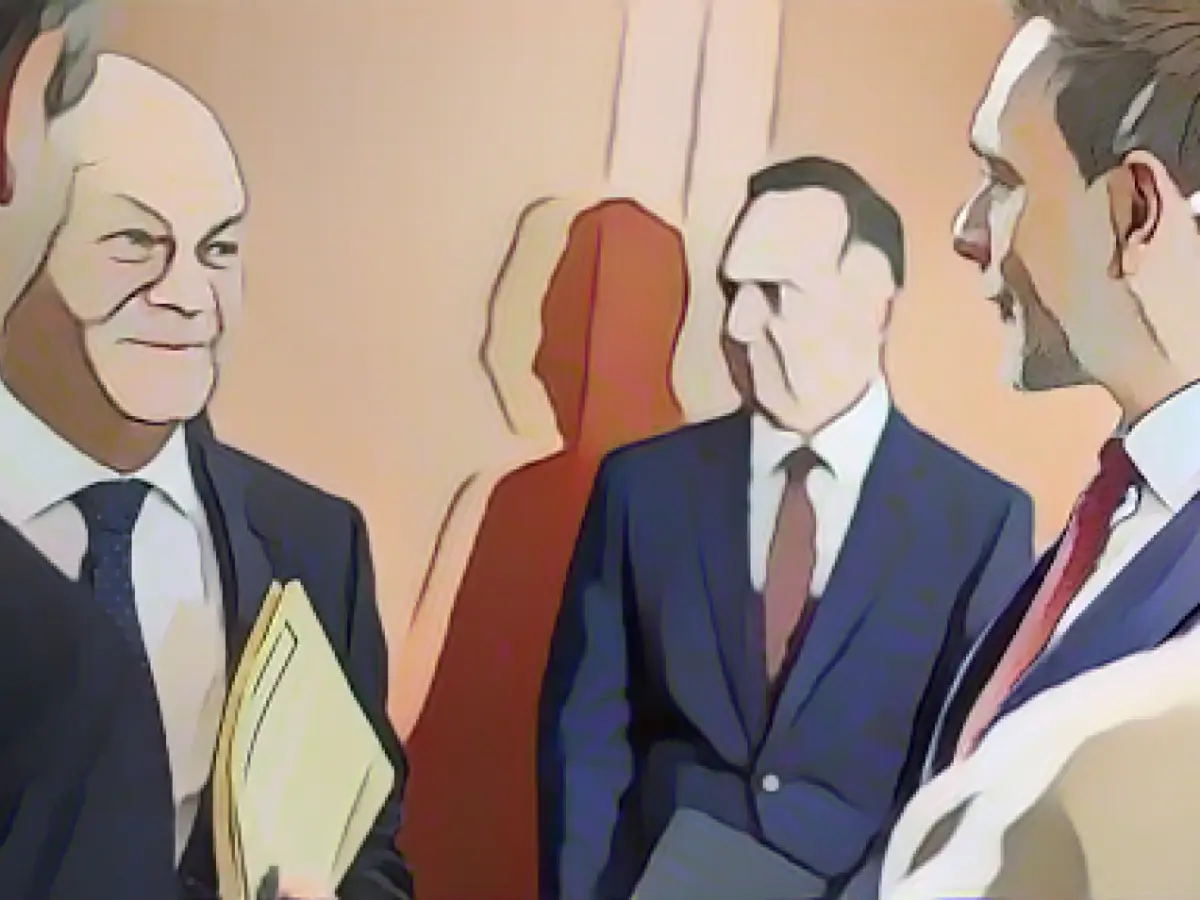Coalition - Lindner: No Need for Confidence Vote
Following the budget crisis compromise, FDP leader Christian Lindner sees no reason to doubt the support of the coalition government for Chancellor Olaf Scholz (SPD) - despite his party's members' vote to remain in government. "The 2024 budget is in place, and the Chancellor should have no doubts about the majority for his government in Parliament," Lindner told Redaktionsnetzwerk Deutschland.
A confidence vote, as demanded by CDU/CSU parliamentary group leader Friedrich Merz, would only be necessary if the Chancellor questionned their parliamentary majority. Merz's demand was "part of the usual opposition gymnastics."
Meanwhile, the debate surrounding the 'K-question' continues within the CDU/CSU. This issue becomes pertinent if the coalition falls apart, with the next federal election scheduled for fall 2025.
The Traffic Light Coalition's Survivability
Lindner said that his party's member vote does not stress him out. "Because it is an opportunity to make clear that the FDP is helping to shape the direction of the government." The FDP leader dismissed alternative options, including an SPD-led grand coalition or the current government continuing as a minority, as unfavorable for the country.
FDP Vice Wolfgang Kubicki urged party members to vote against ending the traffic light system in the survey. "I expect that there will not be a majority in favor of leaving the government," he told Stuttgarter Zeitung and Stuttgarter Nachrichten newspapers. "Because it should be clear to everyone that we can hardly go into an upcoming election campaign with the slogan: We have failed, vote for us anyway."
FDP parliamentary group leader Christian Dürr expressed confidence in the Funke media group newspapers. Together with the SPD and Greens, the FDP had "made progress on many things that would have failed because of the CDU/CSU in a Jamaica constellation."
The online survey of FDP members is set to launch soon. Its results may fuel discussions but have no immediate consequences, as the constitution does not compel party organs to implement it.
The CDU/CSU's K-question Conundrum
In the CDU/CSU's discussion, Saxony's Minister President and CDU Vice President Kretschmer told Bild am Sonntag that Merz was the "logical candidate for Chancellor." He added that Merz has reunited the CDU and is therefore the "most plausible" choice.
CSU state group leader Alexander Dobrindt told Rheinische Post newspaper that the CDU and CSU were ready to collaborate, resolving the personnel issue as a federal government. Dobrindt emphasized that Merz was the "clear favorite" candidate for Chancellor.
CSU leader Markus Söder concedes that Merz would only be the favorite in the event of an early election but said that the key question regarding the candidacy for Chancellor is who can secure the most Union votes. Söder and Merz discussed that the K question should be clarified in late summer 2024.
The CDU/CSU’s Internal Divisions
Historically, the CDU and CSU have been closely aligned. However, recent attempts by the CDU to tighten immigration laws and collaborate with the far-right Alternative for Germany have caused internal tensions within the alliance.
The list below summarizes the current status of the K-question and its impact on potential Chancellor candidates:
- Policy Divisions: The CDU's attempts to address immigration and asylum policies, even with the support of the AfD, have caused internal divisions within the CDU/CSU alliance.
- Leadership and Coalition Dynamics: As the current CDU leader, Friedrich Merz's approach to immigration and asylum policies has both boosted his popularity and raised questions about his judgment and ability to form a coalition government.
- Impact on Coalition Formations: The K-question complicates coalition dynamics, as the Greens may oppose some of Merz's policies, potentially impeding the formation of a stable coalition.
In conclusion, the K-question remains a significant challenge for the CDU/CSU alliance, with internal divisions and external pressures shaping the political landscape and the potential candidates for Chancellor in Germany.








